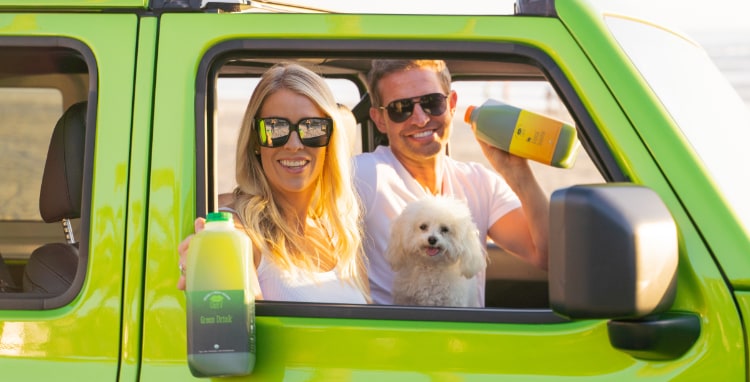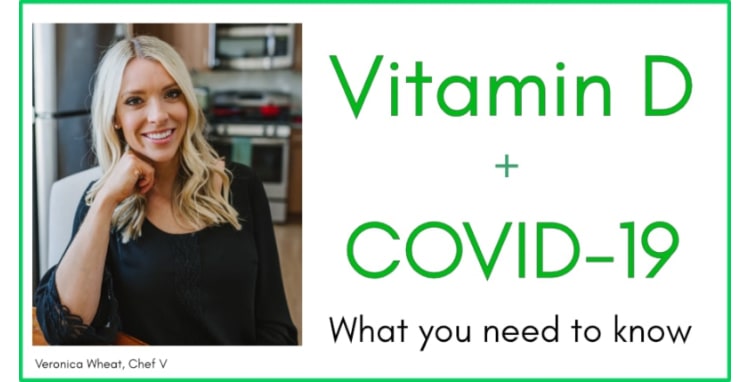
Are you about to take your first trip in a long time? Excited but still a little nervous? Then keep reading because I have some tips to make your travel experience a little more easy-going.
Or maybe you’re not nervous at all to travel because you’ve been vaccinated for COVID-19….
If that’s the case, you shouldn’t let your guard down even if you’ve been vaccinated.
That’s because there are well over 200 viruses that are known to be able to infect humans. Obviously, COVID-19 is the one that’s still on everybody’s mind, but it’s clearly not the only one that can make you sick if you’re flying.
So let’s dive in and explore how to keep your immune system strong and balanced before you trip.

Start Taking Care of Your Immune System Now
Suppose you’re meeting close friends for dinner before you trip. Your friends order a bottle of wine. Toasts are made to being fully vaccinated and returning to life, and to your upcoming trip.
One glass of wine quickly goes down. Then another. And another. And by the next day, you’re all congested and your energy is way low because you couldn’t sleep (the wine and the congestion interfered with your sleep cycle).
At this point, your immune system has taken a huge punch to the gut. (No pun intended; 80% of your immune cells are in your gastrointestinal tract.) The congestion can then lead to a cold or sinus infection.
If you’re sensitive to sugar and gluten like I am, all it takes is one celebratory meal to make yourself sick.
Or suppose, you’re going to a birthday party shortly before your trip. Allow yourself one tiny square of birthday cake but no more. It’s not worth jeopardizing your immune system for what may very well be your first significant trip in over a year.
In addition to limiting alcohol and added sugars, start supporting your immune system now by fueling your cells with nutrient-dense superfoods. If you don’t have time to prepare meals with green leafy veggies, you can drink them down and have it delivered to your home.
Because of COVID, in addition to green, leafy veggies, I’ve been getting more edible mushrooms in my diet. Mushrooms are one of the best foods for immune support. Just like my Organic Green Drinks make it easy to get green leafies in your diet, mushroom powders make it easy to get ‘shrooms.
Organic Hand Sanitizer
Are you still using hand sanitizer after every time you go out in public? I can’t say I blame you. However, I am concerned about the long-term health effects to the gut microbiome when using conventional hand sanitizer so often.
This is especially true if you’re frequently disinfecting your hands with antibacterial soap.
And when I travel, instead of antibacterial soap, I use organic hand sanitizer or an essential-oils based disinfectant like Thieves spray.
Another thing you can do is carry some extra napkins on you when traveling. If you have to open a bathroom stall door, whip out the napkin and use it to grab the handle. I know it may sound wasteful, but, hey, as the saying goes, reduce, reuse, recycle. Don’t grab a huge wad of napkins next time you’re getting coffee to go. But if you already have napkins or tissues on hand, why not put them to good use for the rare times when you fly?
Take a good Probiotic
Especially important before I travel, I make sure I eat probiotic-rich foods and take a high-quality probiotic supplement to colonize my gut with friendly bacteria. I recommend the brand probiotic I take it’s called Bio-k. They have dairy and non dairy fermented options. To me it’s the best source because it’s fresh not a pill. I have one bottle for three day’s servings, each day, on an empty stomach. Then I wait 15-30 minutes before having my Green Drink.

Nasal Spray
The bone-dry air of an airplane is the perfect breeding ground for viruses. Now, in fairness to many airlines like Southwest, they have done a great job installing high-tech air filters that, according to Southwest’s website, offers “a full exchange of cabin air with fresh, outdoor air and HEPA filtered air every 2-3 minutes.”
But even so, the dry air on an airplane can cause microscopic tears in your nostrils. This makes it more likely for any potentially-pathogenic virus to penetrate the mucosal barrier in your nose and infect you. The antidote to this is moisturizing your nose with a saline nasal spray or nasal lubricant gel or oil, as soon as you get on the plane. (Or better yet, apply it before you enter the airport.)
Viruses Aren’t The Only Concern When Traveling
COVID-19 is the predominant health concern for those traveling. But don’t forget about traveler’s diarrhea, food poisoning and other digestive maladies that arise.
As I mentioned in a previous post I wrote about traveling with kids, I always make sure to bring remedies that will soothe an upset tummy. Read it to find out why I like yeast probiotic and Oregon Grape Root the best as well as tea tree oil for other health mini-crises that may arise while traveling.

Stress Management
And perhaps the best advice I can give is to not give into fear.
One excellent way to keep negative or fearful thoughts at bay is to maintain a daily health-manifestation practice. Repeat a simple mantra a few times a day that you’re healthy and your immune system is supporting you and well-balanced.
You can recite the mantra mentally so the person on the plane next to you doesn’t think you’re kooky.
And don’t forget to take long, deep breaths several times per day. If you’re currently not doing that now and your trip is coming up, start a breathing/meditation practice today, especially if you’re somebody who experiences a bit of anxiety before a big trip.






